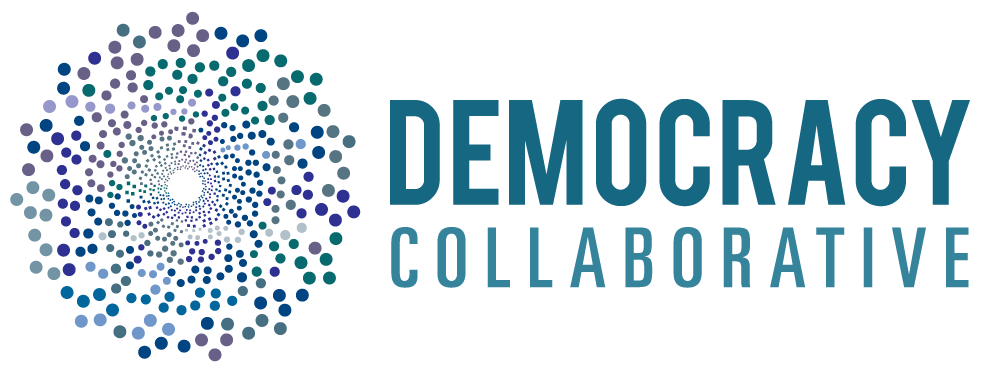Elements of Community Wealth Building
-
New municipalism (or sometimes just “municipalism”) is an umbrella term for a range of emerging, locally focused strategies for social and economic transformation beyond both traditional neoliberal and centralized/national statist approaches. It includes many variants, from more traditional municipal socialist approaches that seek to effectuate institutional change through new or existing elected officials, government agencies, and political parties/platforms to “radical municipalist” efforts that are focused on building up autonomous local organizations outside of traditional state structures. While new municipalism is a broad concept and a diverse movement, some commonalities often include building and scaling democratic economic institutions (such as cooperatives), developing more direct democratic practices within and around economic, social, and political organizations (such as popular assemblies and participatory planning), embracing regional, national, and international networks and partnerships (i.e. rejecting the notion that municipalities can “go it alone”), and feminizing politics by focusing on care work, relationships, challenging privilege. As such, in many cases a local Community Wealth Building effort would be considered some form of a new municipalist strategy, and localities implementing CWB should consider joining emerging new municipalist networks to share best practices and learnings. Such collaborations appear ripe with potential, since CWB places particular emphasis on establishing new democratic economic institutions, while many new municipalist efforts have excelled at grounding their work within social movements and participatory institutions. While municipalist strategies have a long and rich history around the world, the term “new municipalism” is often traced back to developments in Spain following the financial crisis of the late 2000s. In particular, this includes the formation and electoral success of Barcelona en Comú, a highly participatory municipalist “platform” that arose from the city’s active social movements. Part of BComú’s strategy was to forge relationships with other municipalist efforts around the world, and to that end they hosted the first Fearless Cities summit in 2017. Fearless Cities has gone on to become a “an informal global movement of activists, organizations, councilors and mayors that are working to radicalize democracy, feminize politics and drive the transition to an economy that cares for people and our environment,” and regional Fearless Cities events have been held in Brussels (Belgium), Valparaiso (Chile), New York City (USA), Warsaw (Poland), Belgrade (Serbia), and Naples (Italy). Currently, the Fearless Cities network lists 77 affiliated efforts across the world across several categories, including : municipal government, municipal opposition, independent candidate for municipal elections, countermunicipalist (“platform working outside institutions”), regional/national party, network, and individual councilor.
Fearless Cities lists 10 affiliated efforts in the United States, with half of these described as being “countermunicipalist” in nature. This includes one of the more prominent new municipalist efforts: Cooperation Jackson. Based in Jackson, Mississippi, Cooperation Jackson was founded in 2014 as part of the effort to implement the economic democracy principles of the wider Jackson-Kush plan formulated by the Malcom X Grassroots Movement and the New Afrikan People’s Organization. Cooperation Jackson seeks to “create jobs with rights, dignity, and justice that generate wealth and distribute it equitably based on the principles of cooperation, sharing, solidarity, and democracy” primarily through a network of worker cooperatives.
Municipalist efforts do face legal and strategic challenges. State laws and constitutional provisions may restrict the policy options available to municipal actors. In Spain, Barcelona en Comú has faced challenges since housing policies related to rent control and eviction are subject to laws set by higher political jurisdictions. In the United States, Republican-controlled state legislators have used “preemption” to prevent or overturn local laws across a host of issues—from fracking bans to minimum wage laws and LGBTQ protections. New municipal movements have also faced strategic questions about the prioritization and timing of electoral efforts. Cooperation Jackson, for example, has put economic self-determination and institutional building above earlier efforts focused on electoral politics.Additional Resources
Minim – Municipalism Observatory
1 Stir to Action, “New Municipalism: A Video Explainer,” Minim, September 26, 2018, accessed 2/2/22, https://minim-municipalism.org/db/new-municipalism-a-video-explainer.
2 Eleanor Finley and Aaron Vansintjan, Radical Municipalism in the US and Canada (Minim Report N. VII, November 2021), accessed 2/2/22, https://minim-municipalism.org/wp-content/uploads/2021/11/The-lay-of-the-land-4.pdf.
3 “What is Municipalism?” Minim, accessed 2/3/22, https://minim-municipalism.org/what-is municipalism.
4 Bertie Russell, “Beyond the Local Trap: New Municipalism and the Rise of the Fearless Cities,” Antipode, vol. 51, no. 3 (2019), https://onlinelibrary.wiley.com/doi/full/10.1111/anti.12520.
5 Erik Forman, Elia Gran, and Sixtine van Outryve, “The Municipalist Movement,” Dissent, Winter 2000, accessed 2/3/22, https://www.dissentmagazine.org/article/the-municipalist-moment.
6 “Network,” Fearless Cities, accessed 2/2/22, https://network.fearlesscities.com/.
7 “Map,” Fearless Cities, accessed 2/2/22, https://www.fearlesscities.com/en/map.
-
Description text goes here
-
Description text goes here
